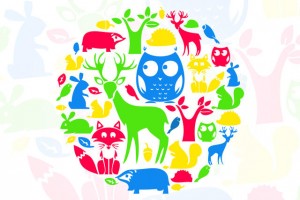The opinions represented in this article do not necessarily represent those of the staff of CUIndependent.com nor any of its sponsors.
The human experience is made up of emotions, emotions that connect people to each other and tear them apart. However, to say that emotions only define “human” experiences is wrong and yet again keeps true understanding between man and beast from becoming possible.
Loss: that deep-in-the-stomach emptiness. Loss is a feeling that can wake you up or keep you from falling asleep. It affects your mood � it holds weight. Loss comes in many forms and makes appearances throughout� life. Your first experience with loss may be when a pet dies or an elderly family member passes away. Loss, however, does not just enter your life through death. The loss of a best friend can ache in a similar way, as can a break-up with a lover.
As a young woman, I have been introduced, and over time, gotten to intimately know a few different forms of loss. For me, the most familiar form so far has been the loss of a relationship. When an intimate, familiar and comfortable presence in life is taken away, it hurts. It hurts differently than a punch or a stomach ache. Though at first, the emotions may hit you in the gut, hard, that initial blow � the ache � does not�go away with medicine or a bandage. The ache remains and is there, heavy and unmoving, until one day, it lightens and eventually stops.
For humanity, emotions are as real and affecting as our physical surroundings. Emotions control our actions, for good or for�bad. They also allow us to connect to each other. The feeling of loss is born out of love and care. Strangers can connect with strangers because of the universality of emotion.�This universality of emotion does not just include humanity, however; emotions, like loss, are held by other species as well.
Many stories have been shared�about people personally witnessing an animal grieving or even refusing to let someone they love go. The famous story of the loyal dog, Hachiko, now a motion picture, tells of the unwavering loyalty of an Akita dog who, for 10 years after his master’s death, waited everyday at 4 p.m. at the�train station: the time and place his master used to arrive after work.
Other species, and not just man’s best friend, also exhibit loyalty, friendship and signs of grief.
Two�years ago, CBS published a story about two “unlikely friends”: an elephant named�Tarra and her best friend, a dog named Bella. The two�were inseparable, spending their days roaming the sanctuary where they both lived. One day, however, the dog�was injured and stayed inside for three weeks. For those three weeks, the elephant “held vigil,” CBS news correspondant Steve Hartman said. The elephant did not roam or play or do anything but stand outside the gates to the house. Finally, the sanctuary employees carried Bella out to the elephant, and immediately, the elephant trumpeted and waved her trunk, trying to touch the dog. You can view the video here, and see for yourself the grief and ultimate joy that this elephant felt for her friend.
Like the story in CBS, Paul Norris, in his article, “Grief in Animals,”�shares many reports�from the �wildest of animals, such as elephants, chimpanzees,�dolphins and whales, mourning the death of family members. Some elephants even have been seen to frequently visit the body or site�where�a member of the herd died, Norris reveals. On a similar note,�Norris�talks about�a report�where a bottle-nosed dolphin was found in Greece swimming with a dead calf. Reportedly, “heartbreaking cries” could be heard from the mother when she touched her calf, and researchers agreed that though they are trained to “avoid being driven by their own feelings . . . it was quite clear that the mother was mourning.”
There is not much science backing up these anecdotal stories of animals and their grief or feelings of loss, but personally, the stories themselves are enough to prove to me that the human race at large and I are not the only living beings who feel the pain of a lost love. As to what the experience of loss does for all of us feeling, living beings, I do not yet truly know.
As Mark Bekoff says in his article,”Grief, Mourning, and Broken Hearted Animals,”�”grief itself is something of a mystery, for there doesn’t seem to be any obvious adaptive value to it in an evolutionary sense. It does not appear to increase an individual’s reproductive success. Whatever its value is, grief is the price of commitment, that wellspring of both happiness and sorrow.”
The pain of grief is the “price of commitment.” This is a strong, intimidating thought. And it is true. But in my opinion, the pain, perhaps, is also there�to remind�us that in love, there is risk, and nothing great ever�came without putting your heart on the line. I have done this and am not alone � the living world is with me. Loss is a part of life for every creature, and the pain tells us the person we miss was worthwhile and gave something to our lives that perhaps we as humans can�choose not to forget � not to lose.
Contact CU Independent Staff Writer Katrina Winograd at Katrina.winograd@colorado.edu


1 comment
i like the photo! good job!